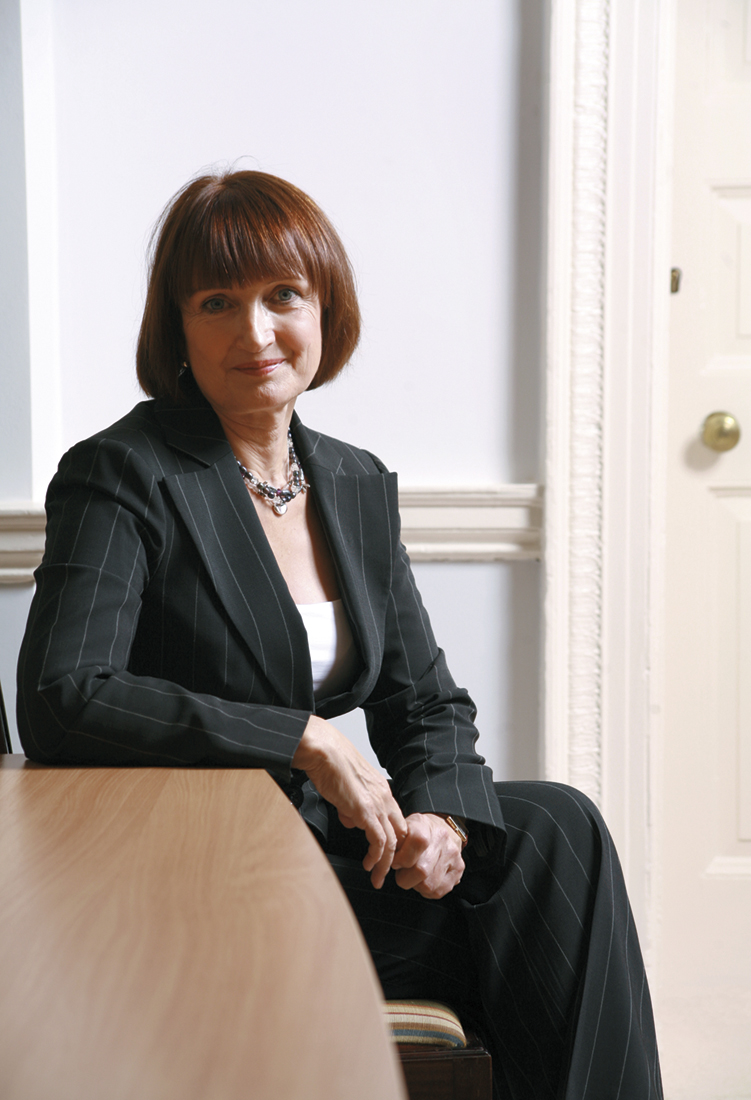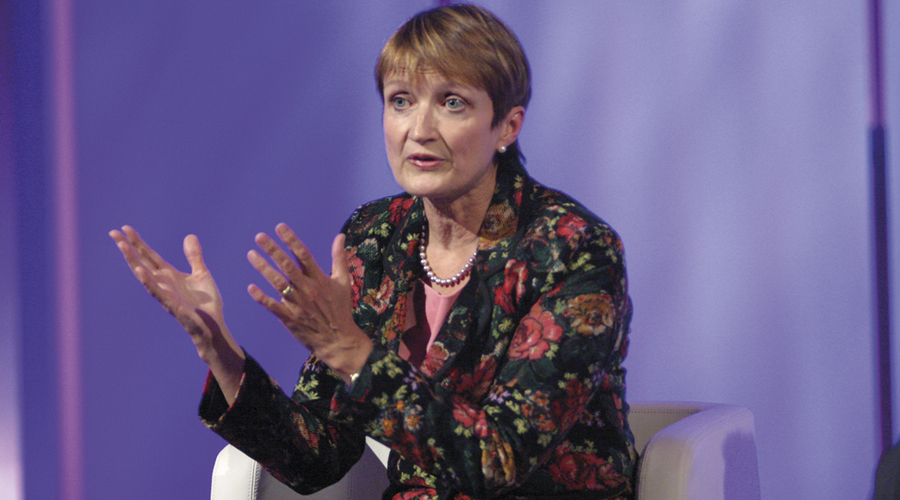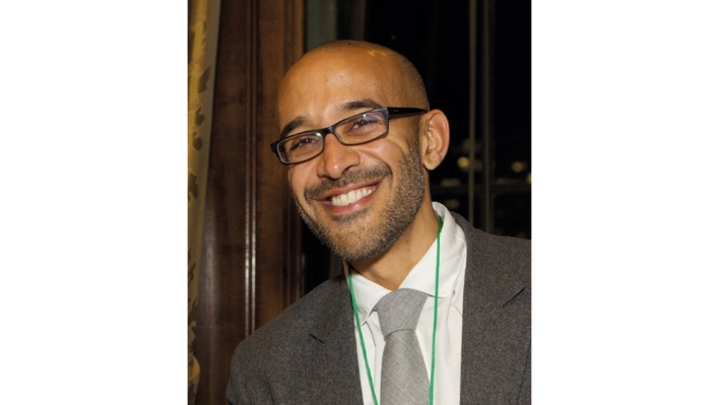Bill Bush celebrates the many achievements of Tessa Jowell, Britain’s longest-serving culture secretary
Tessa Jowell died on 12 May 2018, a year after being diagnosed with a brain tumour. Characteristically, she spent that year campaigning for improvements in cancer treatment, using her own experiences to make the case for changes to treatment regimes for those afflicted with this terrible disease.
Since her death, much has been made of her achievements as a health minister, notably introducing Sure Start, and then as the minister who directed the Olympic project from the very beginning.
The stunning success of London 2012 will always be seen as her outstanding political achievement. She won over a sceptical Cabinet and then spearheaded both the bid preparation and its successful campaign, before leading for government on all aspects of delivery. However, Tessa did much more than this.
Her six years in Cabinet were all served at DCMS, by some distance the longest-serving occupant of the post since its creation in 1992. She was perhaps the most influential media minster the sector has seen.
When her appointment was announced in June 2001, the insular worlds of the arts, media and sport reacted dismissively. What could this social worker from Hampstead possibly know about their intensely important worlds was the often-thought and occasionally expressed reflex reaction. They, and others in politics, felt that being “nice” was no qualification for effective leadership.

This thought gained greater currency when, to her own embarrassment, she misunderstood a technical and obscure question from the audience at RTS Cambridge in September 2001 and had to be rescued by an intervention from then BBC Director-General Greg Dyke.
In the event, culture, media and sport were well served by a woman of high intelligence, a capacity for hard work and the determination to get results. Sport got the Wembley Stadium rescue, the London Olympics and a step change in sporting performance that, at the Olympics, took the UK from amiable also-rans to hardedged winners.
The arts benefited from better investment through the lottery, but, more importantly, by being given more freedom to pursue art for art’s sake. This was a relief from the tedious instrumentalism that demanded, as the arts’ first priority, that they deliver educational or economic benefits.
The media sector got the Communications Act 2003 and a steady hand on the tiller in turbulent times.
Tessa’s key insight was that the media industry in the UK had enormous strengths, despite digital disruption. Her task was to keep the best of the old world while preparing for the new.
In her first few weeks in the Cabinet, she was beset by iconoclasts, who told her that linear broadcasting was about to end and that public service broadcasting was unsustainable in a world of infinite choice.
She listened to the arm-waving and occasionally swivel-eyed prophets of the new media dawn, but decided that, while change was coming, the status quo was working well.
To prove her point, she embarked on relentless rounds of public and industry consultation before launching the Communications Bill as a draft. The idea was to publicly scrutinise the bill before it was introduced as formal legislation.
Seemingly endless consultation was a classic Tessa tactic. Endlessly patient herself, and always willing to listen to the opinions of others, she enjoyed consultations. However, its prime purpose was more akin to Muhammad Ali’s “rope a dope” strategy for winning boxing matches, than a preference for genteel talking shops.
She let the combatants, including hawkish colleagues on her own side of the House, punch themselves out to the point of exhaustion and then brought the debates to her own conclusion.
The Communications Act deregulated the media market, enabled the creation of a single ITV and encouraged innovation and investment from abroad, but also modernised the rights and responsibilities of the BBC and the commercial PSBs.
Ofcom was an inherited manifesto promise, but its final shape and scope were her work. She fought hard for it to be given the space and discretion it needed, as unimpeded by intrusive political interventions as possible.
Tessa insisted that it address people as citizens as much as consumers and, after a long debate, entrenched the principles of plurality.
Alongside the Act, she also oversaw a new BBC Charter and licence-fee settlement. She regarded it as her mission to rescue the BBC – which she regarded as a great and loved British institution – from the twin threats of its own bloated self-regard and the post-Gilligan, post-Hutton threats from politicians.
In the event, she secured a stable future for a strong and independent corporation, properly funded, but less invasive of the private sector than before, and required to lead the UK into the online world. This did not mean giving the corporation whatever it wanted. She made it clear that the BBC’s proposed new digital services were too ambitious and intrusive.
She blocked the education services, which she thought would use the platform of the licence fee to foreclose the market to commercial providers.
Tessa asked that Radio 3 be stopped from becoming a clone of Classic FM, that 6 Music had to be differentiated from commercial radio, and that the proposal for BBC Three was not to be a vehicle for copycatting Channel 4 and Channel 5.
Throughout, she stressed that the BBC should emphasise UK talent and production, and new ideas.
"She was courageously ahead of her time on social issues and unafraid of being ridiculed'
Most dramatically, she decided that the independent production sector was treated unfairly by the commissioning oligopoly of the big broadcasters. This had to change. Lobbied by Pact’s John McVay and Eileen Gallagher, she was persuaded that forcing independent producers to hand over all their rights when they were commissioned by the major broadcasters was plain wrong.
The terms of trade would be transformed. The upshot was that independent producers were allowed to keep key rights which they could then exploit themselves. The result was that the UK now has perhaps the strongest and most creative independent audiovisual sector in the world, second only to that in the US in scale.
Ofcom surveys continue to confirm that British audiences are probably among the best-served in the world, a tribute to Tessa’s clear vision.
Being determined to bequeath a healthy media industry to her successors did not mean that Tessa lost sight of her reforming zeal as a social-policy radical. She was courageously ahead of her time on social issues and unafraid of being ridiculed.
She raised the issue of female body image and warned of the damage it was causing. She demanded that media literacy be a key part of liberalising media regulation, so that choices and voices could proliferate, but people would still have some protection from the babble of the internet. She was lampooned on both points, but how prescient she was. If only she’d used the term “fake news”.
Tessa was a true reformer, on the face of it an unlikely candidate to deregulate the country’s ridiculous alcohol licensing laws. But she felt that there would be huge benefits if drinking in pubs and bars could become more civilised and relaxed.
She received a vitriolic reaction from the moralising press, but she held firm. Now, we take it for granted that pubs will serve half-decent food, that it’s no disgrace to ask for tea or coffee at the bar, and that children are welcome, no longer parked in some bleak, windswept garden and palmed off with a fizzy drink and a packet of crisps.
Tessa opened the way for all that to happen. The reforms also helped reduce drunkenness, make late-night drinking less wretched, and cut deaths from drink-driving. Millions of people’s lives were improved by these reforms.
Her personal qualities, as much as the DCMS’s formal role as the department responsible for public ceremonial, meant that Tessa became Minister for Empathy. She rescued the Diana Memorial, at the time something of an embarrassing joke.
This role became much more serious after 9/11 and then 7/7. Her empathy, combined with her decisiveness and eye for detail, meant that the public mourning and tributes to the victims, survivors, their families and the emergency services were handled with grace and decency.
Typically, she did more than empathise and organise: behind the scenes, she worked to secure much-needed improvements in disaster planning and response, and reform of compensation schemes.
The 7/7 attacks were especially demanding for her, coming the very day after the London Olympic success in Singapore. Somehow, she straddled the two worlds with enormous dignity.
Much has been made about her decency. Unlike many senior politicians, she was inclusive and collegiate. However, far from being the prissy, or saintly, individual described by the media, the day-to-day Tessa was tough, resilient and, occasionally, profane.
She was certainly not dainty in the way she pushed her staff. While a party loyalist, she was also intensely factional. Tessa seemed to operate as the mother confessor for half the Cabinet, an early career in mental health making her kind and supportive but also utterly unshockable.
She was always very political. Her skill at bringing people together was not just a product of her decency. Nor was it at the price of agreeing and nodding along just for the sake of being nice.
Tessa didn’t give an inch to the shouters and the table-pounders but gave them the same courtesy as everyone else. If, to achieve her objectives, she had to manage people who were dim, obstructive, or, as she saw it, wrong, then so be it.
They would find themselves tactically out-manoeuvred and charmed into agreeing with her. They might even go away from the encounter thinking she was their best friend. But she would get her own way.
Bill Bush was special adviser to Tessa Jowell at the DCMS from June 2001 to May 2005.







